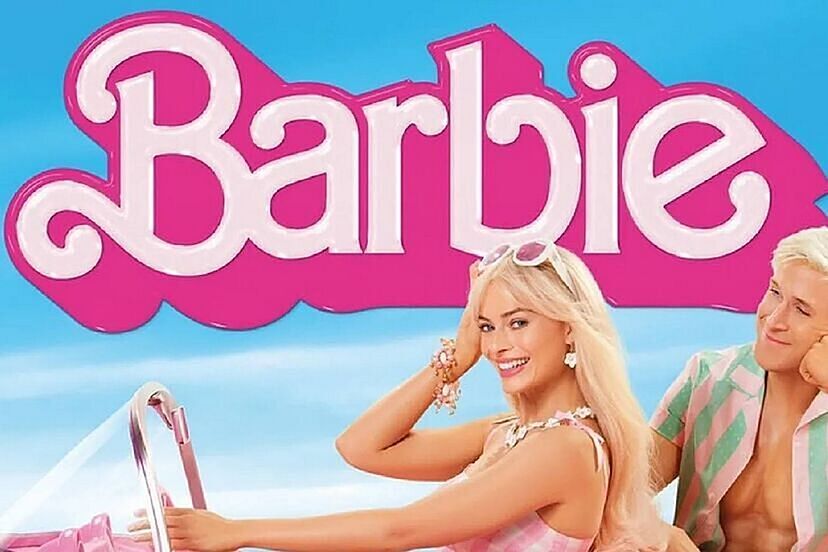Oppenheimer is one of the greatest movies ever created in modern cinematic history. While this may seem like a weird assertion to begin an op-ed review on Greta Gerwig’s Barbie, it is essential to provide some background as to why I state “in defense of” instead of simply reviewing the pink wave that swept the entire world.
Sometime around May 2023, I became aware of the cultural phenomenon “Barbenheimer,” the international satirical craze surrounding the identical release dates of Barbie and Oppenheimer, which the internet found humorous given the grand contrast between the films’ themes, tones and styles. Seeing the trailers for both films, I became intrigued by the deep, emotional weight of the story of the ill-fated American theoretical physicist being relayed by Christopher Nolan, one of the greatest film directors of this generation. As for Barbie, I saw it as an abecedarian, frivolous movie meant to appeal to the masses.
With this preconception, I went to see Oppenheimer at the theaters in late August. The film was spectacular and thought-provoking; the tour-de-force performances by all cast members, both major and minor, especially that of Cillian Murphy, combined with the resonant script resulted in the motion picture’s emergence as a serious contender for the title of “movie of the year.” So, when I saw that Oppenheimer had only received a 93% rating on Rotten Tomatoes, especially in comparison to Barbie’s 87%, I was rather astounded and annoyed at people’s oblivion and lack of appreciation for the former’s preeminence. Combined with many of my peers relaying to me their declared discontentment for the script and puerile nature of Gerwig’s brainchild, I was not particularly keen on watching Barbie anytime soon.
Finally, in early October, I decided to give Barbie a chance and watched the worldwide phenomenon at home. Going into the film, I continued to clutch onto my prepossessions of the film being a simplistic propaganda piece meant to evoke nothing more than a few laughs. Fortunately, I could not have been more wrong. By the end of Gerwig’s opus, I had been moved in both an emotional and psychological manner; I had become enlightened, although not in the manner you might think.
To provide a simple synopsis, Barbie is a fantasy comedy based on the eponymous Barbie fashion doll and franchise developed by the toy company Mattel. The storyline centers around ‘stereotypical Barbie,’ portrayed by Margot Robbie, who undergoes an existential crisis while living in Barbieland, a matriarchal utopia where all occupations are performed by different variations of Mattel’s feminine doll and all Kens are socially ostracized and ridiculed. At the beginning of the film, Barbie is told her thoughts of mortality and its accompanying deteriorating effects on her quality of life are likely connected to the depressive state of her real-world counterpart. As a result, Barbie, alongside Ken, embarks on a torturous journey to the real world in an attempt to remedy all of her and her human counterpart’s complications.
After arriving, Barbie and Ken identify a preteen named Sasha, whom Barbie believes to be her real-world companion. The fantastical couple locate Sasha at a public middle school, where Barbie introduces herself and attempts to explain why the abnormalities occurring in her life are linked to Sasha’s depressive state. Sasha condescendingly refutes Barbie’s claim, stating that she had not played with Barbie dolls since her early childhood, then berating Barbie’s modern connotations of racism, sexism, conformity to unjust societal norms, and promotion of unrealistic female body standards, among other criticisms. Distraught and crestfallen by Sasha’s comments, Barbie — now crying — flees.
After moping for some time with Ken, emissaries from Mattel notified of Barbie and Ken’s arrival in the real world arrive at the middle school and persuade Barbie to travel with them to the headquarters of Mattel. There, Barbie is brought before the CEO, played by Will Ferrell, and its all-male board of directors, who attempt to convince her of her usefulness in empowering the girls of modern society and urge her to enter a large pink box with the ulterior motive of detaining her for remanufacturing and eventual deportation back to Barbieland. Realizing their intentions, Barbie escapes the box and runs out of the office building while being chased by Mattel employees.
Meanwhile, during Barbie’s search for Sasha, the film simultaneously follows a storyline revolving around Ken, who becomes distracted in his pursuit of Sasha and saunters around downtown Los Angeles. After briefly perambulating around the area, Ken discovers the “patriarchy,” the film’s portrayal of the current status of modern society with thoughts of male superiority and “brotherhood.” Excited by his discovery, Ken walks around his nearby environs with a sense of pride and liberation, fist-bumping men he encounters on the street. After doing this for a short time now convinced his societal status as a man will solely land him a job, he walks into establishments looking for an occupation, only to get rejected due to his lack of qualifications. Undeterred by these complications, Ken immediately embarks on a journey for Barbieland with the intention of imbuing his flawed patriarchal mindset into other Kens.
As Barbie is running out of the Mattel office building, a blue SUV pulls up to the curb with its driver telling Barbie to jump in. Barbie complies, and the car just gets away from the swarm of Mattel employees chasing Barbie.


